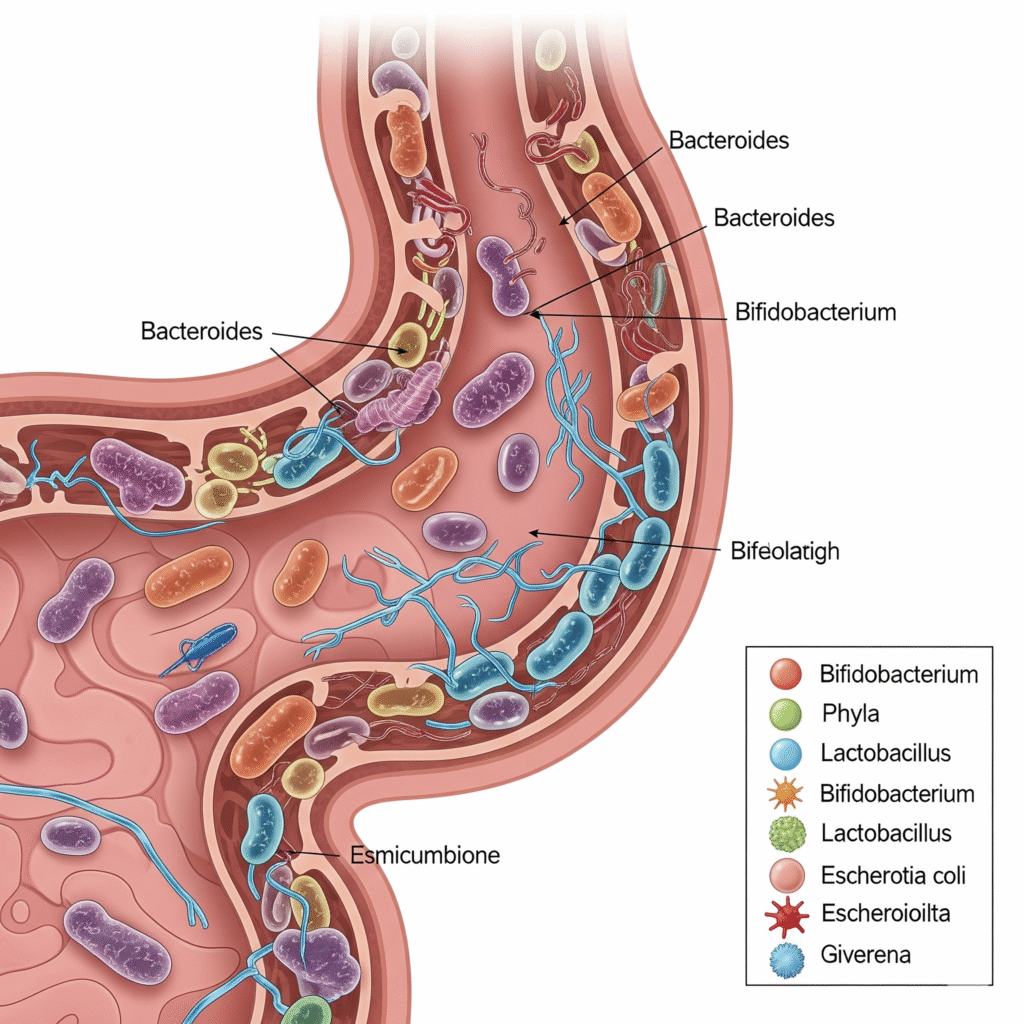What Is the Gut Microbiome?
Your gut isn’t just a food processor—it’s home to 100 trillion microorganisms, forming a unique ecosystem called the gut microbiome. These bacteria, fungi, and viruses help:
- Digest food
- Produce vitamins like B12 and K
- Support your immune system

The Gut-Brain Connection
Your gut talks to your brain through the gut-brain axis, mainly via the vagus nerve and chemical signals. Certain bacteria even help produce serotonin, the “feel-good” hormone.
Researchers have linked gut health to:
- Mood disorders (like anxiety and depression)
- Cognitive function
- Autism spectrum traits
What Shapes Your Microbiome?
Your microbiome is dynamic, it changes based on your:
- Diet (fiber = fuel for good microbes!)
- Antibiotic use
- Birth method (vaginal vs. C-section)
- Environment (more nature = more microbes)
Probiotics, Prebiotics & Postbiotics Explained
- Probiotics: Live “good” bacteria (e.g., in yogurt, kefir)
- Prebiotics: Fibers that feed probiotics (e.g., garlic, oats)
- Postbiotics: Byproducts of probiotics (e.g., short-chain fatty acids)
These three support a balanced, resilient gut ecosystem.
Signs of an Unhealthy Gut
An imbalanced microbiome (dysbiosis) can lead to:
- Bloating, gas, or IBS
- Food sensitivities
- Autoimmune disorders
- Skin problems (e.g., eczema, acne)
Final Thoughts
Taking care of your gut microbiome can impact everything from your digestion to your mood and energy. Small habits like eating fermented foods, managing stress, and limiting processed sugar can make a big difference.
Have you tried adding more gut-friendly foods to your diet? Let me know in the feedback how it’s working for you at feedback@buzzcrate.com
